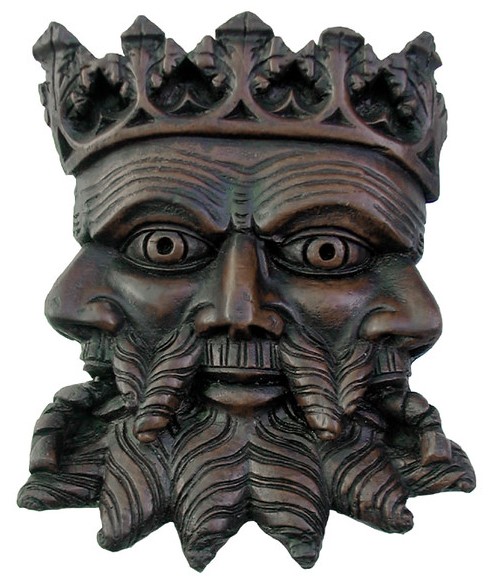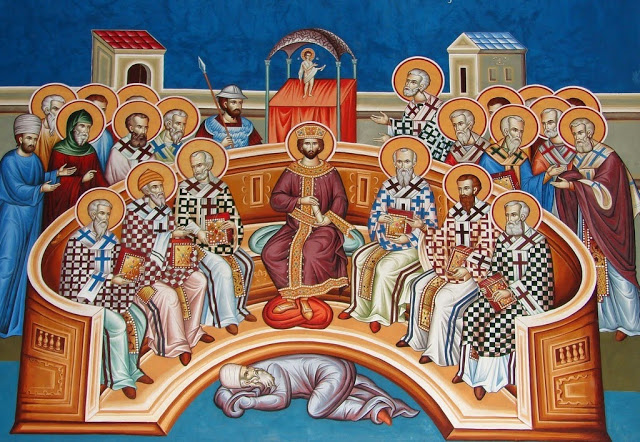|
Listen to this post:
|
In this final part of his guest post (part 1 here) Tre Brickley objects to Dr. Craig’s Trinity theory, which Craig calls “Trinity Monotheism.”

Well, if “is a god” is not an identity statement when said of one of the Father, Son, or Spirit, what exactly is meant by this phrase when said of all three together? Here is a rather illuminating summary of Dr. Craig’s view with respect to what is meant by the phrase “is a god” when said of either the persons or the Trinity:
Trinity monotheism…holds that while the persons of the Trinity are divine, it is the Trinity as a whole that is properly God. If this view is to be orthodox, it must hold that the Trinity alone is God and that the Father, Son, and Holy Spirit, while divine, are not Gods.
Given these statements from Dr. Craig’s published work, we can disambiguate what we earlier gave as the entailments of Dr. Craig’s response to me and clear up the issue of whether there is one god or four gods. What he affirms now seems more like this:
- The Father is divine.
- The Son is divine.
- The Holy Spirit is divine.
- The Trinity (the collection of the three persons Father, Son, and Holy Spirit) is a god.
- The Father is not the Son.
- The Son is not the Holy Spirit.
- The Holy Spirit is not the Father.
- The Father is not the Trinity.
- The Son is not the Trinity.
- The Holy Spirit is not the Trinity.
- There is only one god.
These statements help us see that Dr. Craig’s view successfully avoids the conclusion that there are four gods, but at what cost? Notice that in his view, a statement that something “is divine” does not imply that said thing is a god. As I suspected and suggested in my question to him, it is an entailment of Dr. Craig’s trinitarian theology (and an explicit affirmation of it) that “the Father is not a god” (nor the Son or Spirit, for that matter). What is strange is that this explicitly denies what Dr. Craig affirmed in his response to me: that the Father is a god. Recall that in response to my question he said, “…his inference is correct that it must be true of the person referenced, the Father, that he is a god.”
What to make of this seeming contradiction between Dr. Craig’s published work and his response to me?
It seems clear to me that Dr. Craig is guilty of a misleading equivocation in this response and needs to be more precise in his terminology. Instead of using the misleading phrase “is a god” of each of the Father, Son, and Holy Spirit, he should simply state what he really believes which is that none of these persons is a god but rather each of these persons “is divine” and that “the Trinity alone is God and…the Father, Son, and Holy Spirit, while divine, are not gods”. This misleading equivocation was the basis on which Dr. Craig then went on to show that John taught that Jesus also “is god” and that the Holy Spirit also “is god” in his response. But, of course, from his work we know that he doesn’t mean “is a god” from this but rather “is divine.” So, his marshaling of proof-texts for the belief that Jesus is divine was really beside the point of my question which again has to do with who exactly it is true of that “he is a god” and “he is the only true god.” Dr. Craig wants to affirm that this is the Trinity. I pointed out that in the New Testament this is the Father.
I think Dr. Craig’s response really amounts to this: When in the New Testament the Father is spoken of as “a god,” it doesn’t mean this in the proper sense but rather as a statement of predication of divinity. So, when Jesus said that his Father was his god and our god, he didn’t actually mean that his Father was his god and our god, but rather he really meant that the Father was his “divine person” and our “divine person.” And, when Jesus said that the Father is the only true god, he didn’t actually mean that the Father is the only true god, but rather merely “a divine person,” although not the only one!

But why should we believe that when Jesus refers to the Father as “my god” he doesn’t actually mean that the Father is his god? Why should we believe that when Jesus says that his Father is “the only true god” he doesn’t actually mean that his Father is the only true god?
Apparently, the reason is because elsewhere in the New Testament both the Son and Spirit are called “god.” But Dr. Craig has the resources in his own view that could explain this. A person can be called “god” without it actually being the case that this person is a god. After all, this is exactly what he thinks is the case for all three persons of the Trinity. If we accepted Jesus’s statements at face value that the Father is the only true god, we could say that the Son and Holy Spirit are each “called god” but it is not actually the case for either person that he is a god, instead of having to mangle Jesus’s words and say that actually the Father is neither his god nor the only true god.
So, why not do this? Apparently, the reason is because all the persons are supposed to be ontologically equal. For Dr. Craig, it just can’t be the case that the Father is a god but this is not true of either the Son or the Spirit.
But why should we accept that the three persons must be ontologically equal? After all, one of the persons is going around Palestine, recognizably a man, saying that one of the other persons is his father and his god, that he can’t do anything by himself but only through the power and authority of this other person who he says is his god, and that the third person doesn’t say or do anything unless he receives it from his god. Given these statements, we need an extremely good reason not to think that the Father is ontologically superior to both the Son and the Spirit. What is that reason?

It seems like Dr. Craig has just presupposed the later, catholic creedal requirement that the Son is homoousion with the Father, and this is what forms the foundation of his Trinity Monotheism. It seems to me very ironic that this foundational presupposition leads him to conclude that Jesus isn’t actually a god. I think Arius would have accepted that conclusion. But, what literally nobody in the debate about the nature of the Son (Marcionites and Gnostics aside) would have accepted is the notion that the Father isn’t a god either. It seems that Dr. Craig, with all of his philosophical and theological powers at hand, in his attempt to equalize the persons has not only failed to elevate Jesus to the status of a god but has brought the Father down to his level. It is a reverse homoousion: the Father is now homoousion with the Son in not being a god.
To me, the notion that the Father is not truly “a god” or “the only true god” is unacceptable given the data of the New Testament. It seems to me that Dr. Craig’s view is the result of the prioritization of later creedal, catholic traditions to the neglect of simple, clear New Testament teaching from the mouth of the Lord Jesus Christ himself. If the affirmations that “the Father is a god” and “the Father is the only true god” prevent it from being true that “the Trinity is the only true god” then so much the worse for Dr. Craig’s Trinity theory.
For more on Dr. Craig’s “Trinity Monotheism” check out trinities podcasts 296, 297, 299 and 300.
